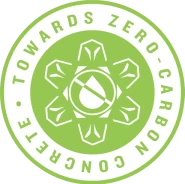- +27 (0) 10 109 2987
- info@penetron.africa
Frequently Asked Questions
Explore the frequently asked questions about Penetron products, including typical uses, crystalline growth rates and concrete protection tips. Learn how Penetron prevents water damage, chemical degradation and enhances concrete durability.
Penetron
What are typical uses for Penetron?
Penetron is designed to waterproof and protect concrete or block structures exposed to water or chemical damage. It provides long-term protection and can be applied to both the positive (water-exposed) or the negative side (opposite the water). Common applications include;
- Drinking water reservoirs
- Sewage and water treatment plants
- Aquariums
- Tunnels
- Foundations
- Lift pits
- Underground vaults
- Industrial installations
- Parking decks
- Base slabs
- Retaining structures
- Basements
- Concrete roofs
- Bathrooms
Why does Penetron allow air but not water vapour to pass through the concrete matrix?
The size of a water molecule remains constant across its different phases (liquid, gas, solid), but the molecular interactions change. In the gas phase, molecules are far apart, while in the liquid phase, they are closer together. Penetron works by blocking water while allowing air to pass because water molecules in liquid form are more affected by these interactions, leading to Penetron’s unique permeability control.
At what rate does crystalline growth occur in concrete?
The growth of Penetron’s crystalline structures depends on several factors:
- Concrete mix design
- Cement type
- Amount of water present
- Whether applied to the positive or negative side of the structure
Penetration rates vary but generally crystal growth in good quality concrete takes between 7 to 21 days. Positive side applications see faster growth owing to continuous water presence which is necessary for crystal stimulation.
How do I protect and cure freshly cast concrete?
Proper curing is essential for achieving maximum strength and durability in concrete. After placement concrete must be kept moist and at a controlled temperature to prevent premature drying, cracking and reduced strength. Protect the concrete by covering it with plastic sheeting or spraying water. Controlled curing ensures the concrete reaches over 90% of its final strength within three weeks and prevents issues like scaling, reduced abrasion resistance and cracking. Adding Penetron Admix enhances early strength and increases comprehensive strength beyond standard levels achieved in 28 days.
How does Penetron prevent blistering and efflorescence?
Blistering occurs when air or water vapour trapped in the concrete escapes during curing, forming bubbles under the surface. Efflorescence results from soluble salts migrating to the surface and leaving a white residue. Penetron’s waterproofing technology prevents these problems by sealing the concrete and stopping water movement, ensuring a flawless, durable and maintenance free finish.
What causes concrete degradation?
Concrete degradation can occur owing to several factors:
- Alkali Silica Reactions (ASR): Certain aggregates react with alkalis in the cement, causing expansion and cracking. Penetron prevents ASR by stopping water infiltration, which fuels these reactions.
- Corrosion of reinforcement bars: Rusting occurs when water penetrates the concrete and reaches the steel rebar. Penetron blocks water ingress, preventing rust and corrosion.
- Carbonation: Over time, CO² in the air reacts with calcium hydroxide in concrete reducing alkalinity and promoting rebar corrosion. Penetron and Peneseal FH prevent carbonation.
- Chloride and sulphate damage: Chlorides and sulphates can attack both the cement binder and the rebar. Penetron reduces chloride penetration and sulphate ingress, increasing concrete durability.
- Leaching: Water movement through cracks and pores can dissolve essential minerals, weakening the concrete. Penetron accelerates self-healing by promoting crystal growth.
- Freeze/thaw cycles: Water inside concrete expands when frozen, causing cracks. Penetron prevents moisture infiltration, protecting concrete from freeze/thaw damage.
- Bacterial corrosion: In environments like sewage systems, bacteria produce acids that degrade concrete. Penetron products offer protection against bacterial damage.


